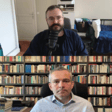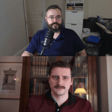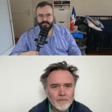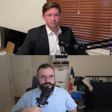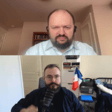
Ep 7 - Steven Glinert, CEO of Sphere Semi - Semiconductors, Industrial Policy, National Security, And China
On this week's episode of the Sphere Podcast, Pascal-Emmanuel Gobry, Publisher of Sphere Media, interviews Steven Glinert, Founder and CEO of Sphere Semi, a semiconductor company in the national security space. We discuss everything at the intersection of semiconductors and policy: why semiconductors are so important and valuable, why they're tricky to manufacture, the economic and national security implications of semiconductor manufacturings, why industrial policy may or may not be a good idea, the CHIPS Act, the rivalry with China, and more.
And, of course, his favorite book outside his area of expertise.
This was a fascinating conversation.
Subscribe to the PolicySphere Morning Briefing: https://policysphere.com/subscribe
Follow Steven on X: https://x.com/StevenGlinert
Steven's Substack: https://www.glinert.co/
Sphere Semi: https://www.spheresemi.com/
Subscribe to the Sphere Podcast on Apple Podcasts: https://podcasts.apple.com/us/podcast/sphere-podcast/id1780831168
Subscribe to the Sphere Podcast on Spotify: https://open.spotify.com/show/48eWEcxSYDyrgjC3lO0EJZ
Subscribe to the Sphere Podcast on YouTube: https://www.youtube.com/channel/UCB2gs2TBXeP7vyn9QUaaxjQ







